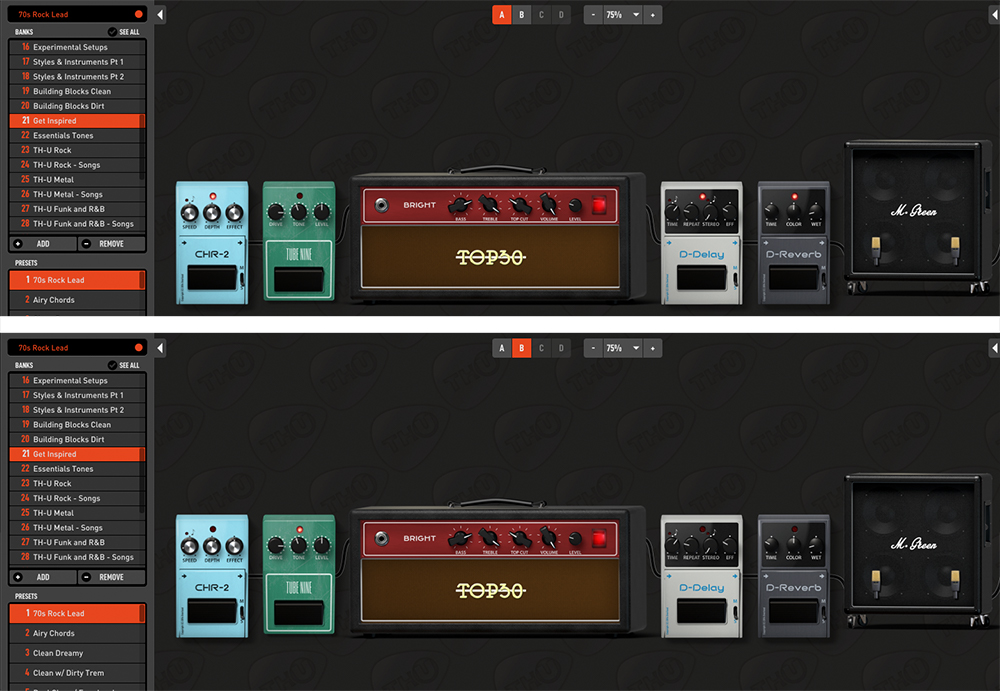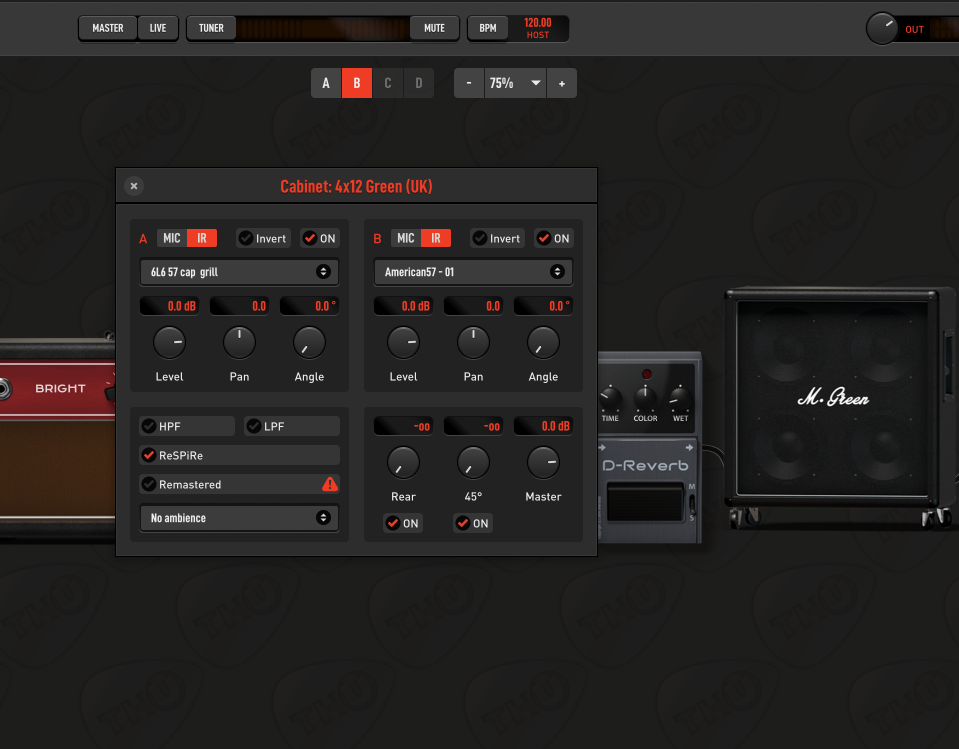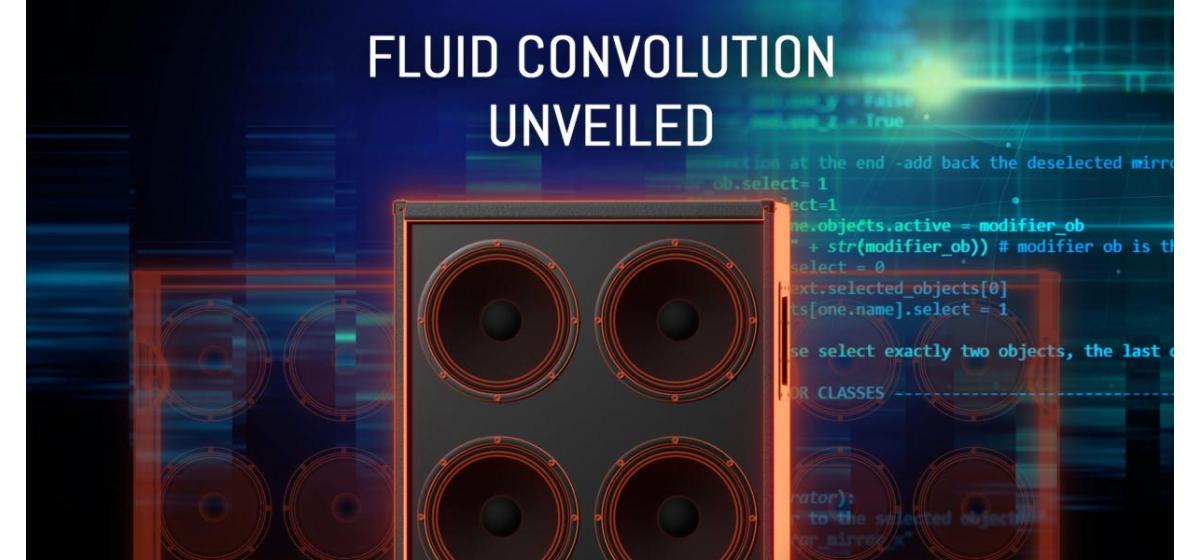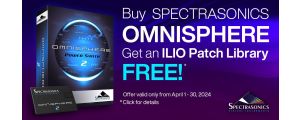Fluid Convolution Unveiled
During NAMM 2021 Overloud announced Fluid Convolution, a new technology utilizing next generation DSP Technology to process Impulse Responses. Fluid Convolution will be the driving technology behind upcoming Overloud cabinets and IR processing products. The first product to utilize this is TH-U v1.3 available now as a free update for registered users:
What's new?
- Scenes (perfect for live performers!)
- Improved cabinet processing with Fluid Convolution
- Double IR Loader integrated into the cabinet, available in TH-U Full, Rock, Metal, and Funk and R&B Editions
Let's dive and and find out what they are shall we?
NEW: Scenes for TH-U
Imagine the intro of your song uses a chorus pedal, a reverb, and a delay. The first verse however ONLY uses an overdrive. You have a fraction of a second to turn those three pedals off and the overdrive on before the first verse starts. How do you do it? Answer: SCENES. Scenes allow you to take one preset in TH-U and save up to four different snapshots of it's state for immediate recall. The solution to the problem above would be to save the state where the chorus, reverb, and delay were switched on, and save the state where these pedals were off and the overdrive on. These states can be recalled instantly—perfect for live performers! These Scenes can then be easily assigned to your favorite MIDI foot controller.

Double IR Loader
TH-U has always offered a matrix of four microphones which can be placed anywhere in the 3D space in front and even behind the cabinet. You can also change the angle of these microphones and pan them in the stereo space! With the newly introduced Fluid Convolution, moving the microphones around the cabinet results in no gaps in the sound. You can also use long IRs to get even more realistic and solid tones. This new Double IR loader integrated into the cabinet module now allows you to load and mix IRs with the cab microphones. Using the revamped ReSPiRe 2 technology, choose between the real response of the cabinet and a processed version optimized to fit into the mix.

What is Fluid Convolution?
Convolution is a mathematical process used to impart the sound of a physical space, an amplifier, or any audio effect onto an input signal such as a guitar. It utilizes impulse responses (IRs), which are sampled "snapshots" taken of an effects source, such as an acoustic space or a piece of audio equipment. Those snapshots are mathematically convolved with the input signal to create the desired effect. Overloud has now advanced this technology with their exclusive Fluid Convolution, which allows them to remove the digital artifacts of conventional IR processing and seamlessly switch between different IRs, all the while lowering the CPU impact.
How Does Fluid Convolution Work?
Convolution at its core is the mathematical process used to apply an IR to an audio stream. When the recorded audio sample rate differs from the IR sample rate, conventional convolution requires resampling of the audio in order to match the two sample rates. This is particularly true when oversampling is used, like in many guitar processors. This leads to an increased CPU load and some audio degradation due to the resampling process. With Fluid Convolution, Overloud stores the IRs as models in the complex frequency domain, eliminating the need for resampling. The resulting sounds have a more natural feel and a lower CPU impact.
The transition between IRs also happens seamlessly -- when changing IRs or tweaking cabinet parameters, traditional audio engines typically jump between different impulses according to the new settings. With Fluid Convolution, everything happens smoothly with no gaps or artifacts and with a new level of realism.
Is Fluid Convolution Available?
The first Overloud product that benefits from this new DSP Technology is TH-U 1.3, which is available now. This update is free for all registered users of any TH-U version, Desktop and Mobile.
Fluid Convolution Features:
- Reduced CPU Requirements: Overloud has been able to double the length of the IRs, producing a more accurate simulation and a more solid tone
- More Natural Tone: Thanks to the absence of the resampling stage
- Seamless Transitions: Changing parameters (like moving the microphones or switching IRs) happens much more smoothly, resulting in a more natural feel when tweaking the models
What Other Products Will Have Fluid Convolution?
During the Spring of 2021, Overloud will release a new product that will redefine the IR processing. Stay tuned!







